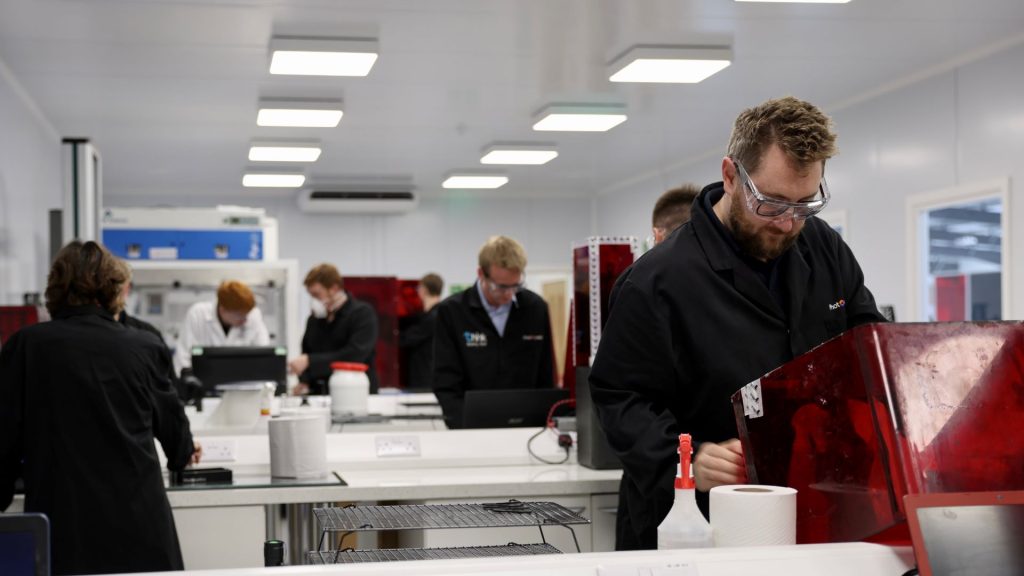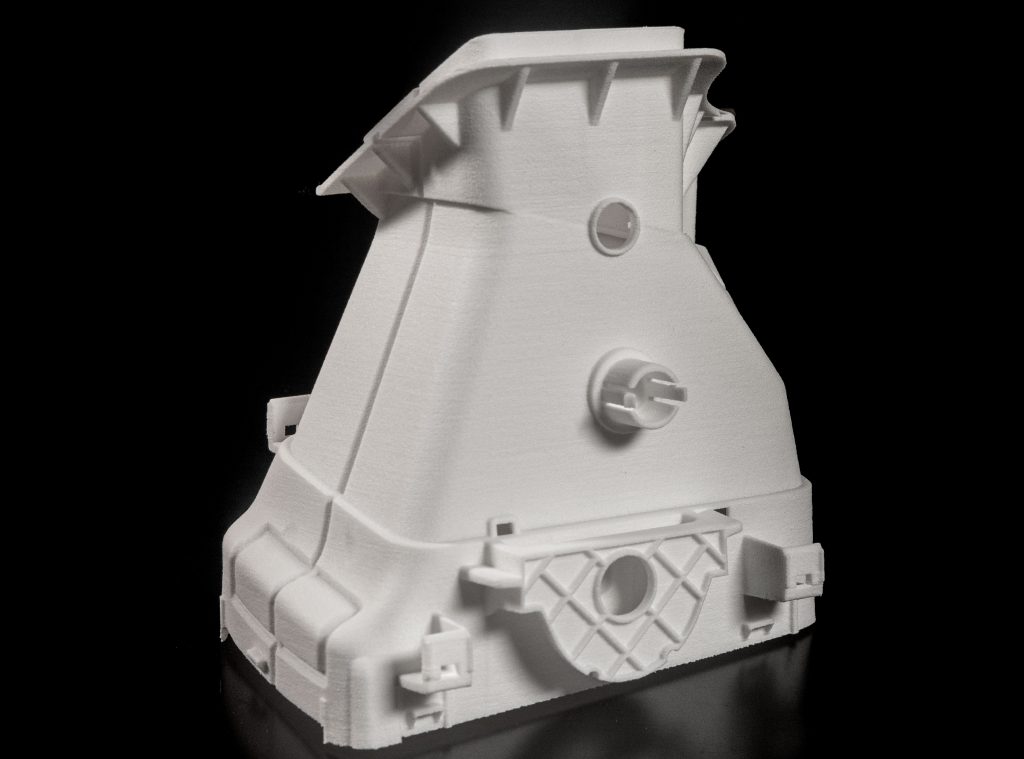Innovate UK, the tech acceleration agency, has awarded £2.5M to Photocentric, a UK-based resin 3D printer developer, for advancing sustainable manufacturing processes.
Photocentric’s Liquid Crystal Display (LCD) Technology is used in the Low Energy Autonomous Digital (LEAD) project to power several of its 3D printers. Paul Holt, the CEO of Photocentric, said, “We are thrilled to be part of the Smart Sustainable Factory and to be leading a project to build a greener Britain. We are manufacturing plastic parts from waste streams using low energy, reducing storage, minimizing transport and materials,”
The development is a part of the Sustainable Smart Factory Investment.
“Thanks to the trust the UK government has placed in our technologies and thanks to Innovate UK financial backing, companies like Photocentric can develop strategic and sustainable innovation in manufacturing,” added the CEO.
Photocentric’s LEAD manufacturing concept intends to develop a low-cost, low-carbon alternative to injection molding for printing polymer parts. Photocentric says that additive manufacturing is frequently employed for low-volume applications since it is more affordable due to the lack of tooling requirements. Single-flow production lines that begin with liquid resin at one end and deliver functional plastic items at the other end are utilized by this scaled-up automated digital process.
The carbon footprint of 3D printing and conventional injection molding manufacturing will be contrasted during the course of the project. Users in the industry will certify both approaches. These include Unipart, a significant manufacturing partner operating in a number of industries, including automotive and rail, Games Workshop, a leading manufacturer of miniatures, Essentra Components, one of the largest injection molders in the UK, and others.

3D printing – a key to sustainability and mass manufacturing
Several firms are promoting 3D printing as a sustainable, effective, and inexpensive solution for production in many areas. For example, Bluesint PA12 3D printing material was introduced by Belgian software and the 3D printing service company Materialise. The powder material is intended to dramatically improve laser sintering 3D printing process’s resource efficiency. The industrial innovation enables printing with up to 100% recycled powder and is a major step for the company in assisting its clients in making environmentally friendly decisions.
Elsewhere, the danger of “greenwashing” was highlighted in a report by management consultant Roland Berger. The report describes how in certain cases, the “superficial” and perhaps “misleading” sustainability benefits of 3D printing are used in marketing. 3D printing is more than capable of living up to its much-touted eco-friendliness, according to Roland Berger in a paper titled “Sustainable Additive Manufacturing,” but it must first become “more visible.”
One enterprise that hopes to diminish any greenwashing by backing up statements on sustainability with science is the Additive Manufacturer Green Trade Association (AMGTA). For example, AMGTA issued a report describing a novel technique for passivating metal powder condensate waste generated during 3D printing. The innovative method, created by Sintavia, a service provider for aircraft parts and powder expert KBM Advanced Materials, combines waste powder with resin to produce a non-hazardous mixture. This makes it possible to transfer the waste securely to recycling facilities where it may be recovered from the resin matrix and utilized again in additive manufacturing.

Innovate UK supporting 3D printing adoption
Innovate UK offers funding and other resources to businesses so they can develop new goods and services. It is a non-departmental public organization that is a component of the United Kingdom Research and Innovation Organization and operates independently from the Government.
Previously, Blue Tap was awarded an Innovate UK Smart Grant to promote the technical advancement of its water-purifying technology. Blue Tap is a social enterprise and University of Cambridge spinoff. The company utilized 3D printing to quickly construct a chlorine doser that was designed to be installed in developing nations’ piped water systems to make the water safe to drink.
Elsewhere, a specialist in hybrid subtractive-additive systems, Hybrid Manufacturing Technologies (HMT), had announced it will be leading a brand-new R&D initiative known as “FastWireAM.” HMT’s initiative, supported by Innovate UK, aims to accelerate the creation of a novel, small wire-feed system for laser-based 3D printing. Once the new DED design is complete, HMT will collaborate with Epoch Wires, a manufacturer of wire feedstock, and consultancy firm TWI to improve its functionality and hasten market adoption.
Nominations for the 3D Printing Industry Awards 2022 have now commenced. Who do you think should make it to the shortlists for this year’s show? Nominate now, the form closes at the end of the month.
To stay up to date with the latest 3D printing news, don’t forget to subscribe to the 3D Printing Industry newsletter or follow us on Twitter, or liking our page on Facebook.
While you’re here, why not subscribe to our Youtube channel? featuring discussion, debriefs, video shorts, and webinar replays.
Are you looking for a job in the additive manufacturing industry? Visit 3D Printing Jobs for a selection of roles in the industry.
Featured image shows the Photocentric production line. Photo via Photocentric.



